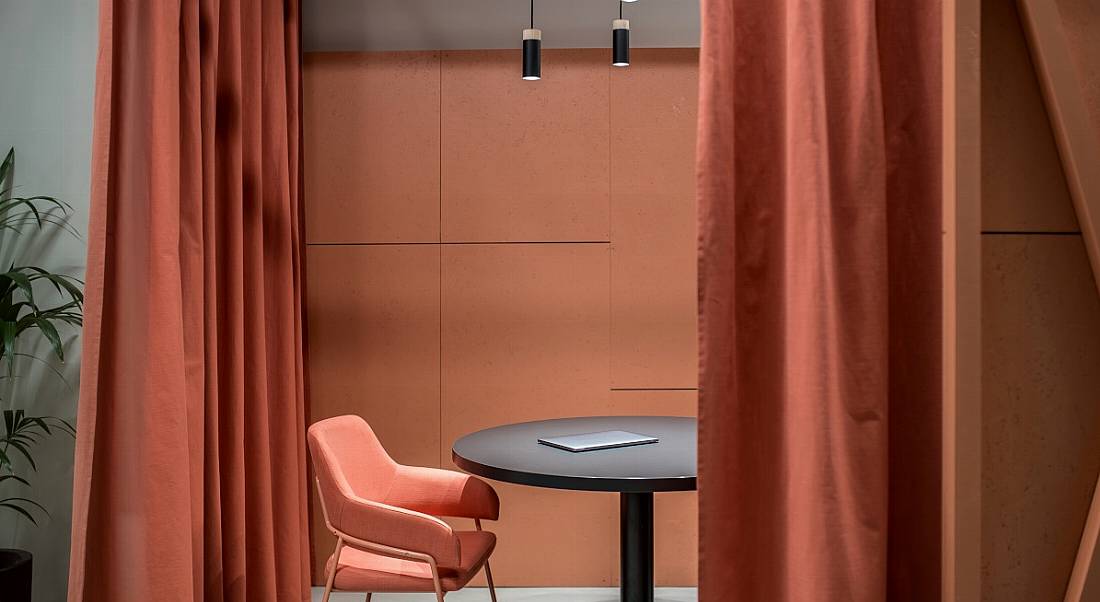Blathnaid O’Dea has gotten used to working from home all of the time. But she found that using a co-working hub could add a new layer to her work life.
I am all alone in my local. No, I’m not trying to imply I’m a barstool bore; the ‘local’ to which I’m referring is my local co-working hub. It’s the middle of the afternoon. I’ve got my reusable water bottle beside me and from the corner of my eye I can see an abandoned apple – the remains of somebody’s lunch, not a free computer.
As SiliconRepublic.com’s careers reporter, I’ve written quite a bit over the past year or so about remote working and co-working hubs. As you may know, the Irish Government has decided to help towns and cities around the country capitalise on the remote and hybrid working trend.
Thanks to dedicated grants, there are now hubs in almost every corner of the country. They offer, for the most part, quiet, comfortable places to work. There’s Wi-Fi, a kitchen, meeting rooms, decent equipment and, for parents, there’s no children. (Although start-up entrepreneurs are getting younger and younger these days).
Despite the fact I’ve been writing about Connected Hubs, the Government’s regional hubs network, I’ve never actually used one of these facilities. Until recently, that is.
‘It is nice not to have to look at the walls in my own house for a while’
It helped enormously that I didn’t even have to pay for the privilege. The Government is running a voucher scheme, which gives anyone who signs up on the Connected Hubs website three free sessions in a hub of their choosing. Otherwise standard rates apply, and these vary by hub as they’re mostly operated by different people and groups.
I booked my free spot via the Connected Hubs portal, which is easy to use. All I had to do was create an account. Next, I typed ‘Galway’ into the location search bar and a list of all the nearby hubs appeared. You can also search for ‘Desks & Offices’ and ‘Meeting Rooms’ as well as ‘Hubs’, depending on what you want. And these facilities are available all over Ireland. I just looked at Galway because I live there.
The closest hub to me is the Soma Co-Working hub in Moycullen, Co Galway. Where I live is so remote that many people in Dublin have not heard of it. Although there will be some who are all too familiar with Moycullen as the village whose GAA team beat Fingal Ravens in the Intermediate All-Ireland Football Championship in 2008. The Moycullen manager at the time was this reporter’s father.
But now it is my turn to put Moycullen on the map, along with many other villages and towns across the country. The great thing about co-working hubs is they bring life and activity to places that are often merely referred to as dormitory towns. Hub owners and users in places like Longford, Offaly, Boyle and many more have told SiliconRepublic.com as much.
Soma Co-working. Image: Blathnaid O’Dea/SiliconRepublic.com
For people like myself who work from home all the time, the experience of using a hub can add another layer to our lives. On the surface of it, it’s somewhere to go and to make connections with other local workers and entrepreneurs. Unfortunately, on the day I go to my hub, there’s nobody there but me, heroically propping up the ergonomic work desk. It is blissfully quiet, though.
Even though the other desks are empty, it is nice not to have to look at the walls in my own house for a while. The presence of the office furniture and the printers is a calming influence and I type away with renewed focus. This is a wonderful facility for people who, unlike me, don’t have good internet at home or who live with other people who make a fair bit of noise.
In an email, the manager of the co-working hub tells me he cannot make it to show me around due to a family emergency. He is very apologetic and leaves instructions with directions to the hub and Wi-Fi details. It’s a personal touch that I’m not sure would happen in a big city.
On the subject of big cities, about a week after my experience at Soma, I venture in as far as Galway’s Eyre Square to check out a bigger and more populous hub. The name PorterShed is likely already familiar to many readers. Unlike Soma and other smaller regional hubs, it is a well-established name in the tech scene here in Ireland.
But PorterShed is not just a co-working hub, so it is unfair to compare it to the likes of Soma. It is designed as a place for entrepreneurs to connect and is one of the hubs that supports NDRC, Ireland’s national start-up accelerator.
There are now two PorterShed buildings in Galway, with a third due to open very soon. Mary Rodgers, PorterShed’s CEO, points it out to me as she gives me a tour of the Bowling Green building, which opened earlier this year. The soon-to-open space is located in the nearby former Connacht Tribune newspaper office.
“It’s all go,” says Rodgers as she leads me around Bowling Green, pointing out podcast studios in self-contained booths, rows and rows of hotdeskers typing away and people mid-conversation in breakout rooms. I gawp at them all; so these are the people who are making things happen in Galway’s tech sector, I think to myself.
In the reception area, I sit and chat to Rodgers, PorterShed head of content Trevor Murray and Rosemary Gallagher, PorterShed’s programme manager and start-up community leader. People are coming and going all around us.
There’s a self-service canteen and people of all ages, genders and backgrounds are sitting around a big table eating their lunches and talking. Others use the barista coffee machine donated by local business Mocha Beans. Free tea and coffee on tap is a major draw for those of us who are dabbling in hotdesking. Soma had its own fully stocked kitchen too, complete with chairs and a table.
‘Even if you think you’d throttle an office soup slurper, I’d recommend trying out a co-working hub’
While at PorterShed, I take the opportunity to test out its hotdesks. “Today is a good day for you to do that,” says Murray. “We just got in a delivery of new ethernet cables.” If you’re not using vouchers, hotdesking costs €30 per day in PorterShed. There are other membership options too depending on your needs or whether you’re part of a company. There is a new membership plan for hybrid workers too, where you pay €200 for 10 days.
In return, you get top-class facilities and access to a growing community of well-connected people. PorterShed has more than 60 companies on its membership books. These range from local start-ups like digital lending platform Luna Connect and business intelligence platform FleetOps, to international companies that have chosen to build teams in the west, like Globalization Partners and Rent The Runway. Most founders would say having access to that kind of network under one roof is invaluable.
Even for remote workers like myself, it’s nice to be able to go to a place and work alongside fellow human beings for a day. The furniture and features in Soma made me feel like I was in a regular office, albeit an empty one. The stories Rodgers and her colleagues tell me about the PorterShed community having dinners together and organising charity events and meet-ups are intriguing enough to make me want to return.
They tell me that there’s always room for more – more people, more ideas and more events. And, as Rodgers says, it’s not just a community for PorterShed members or Galwegians; it’s part of a nationwide network encompassing other groups working together in their various regions to boost Irish homegrown talent. They offer not just spaces to work in, but opportunities for workers to make their own success stories together.
Even if you’re sceptical about co-working or you think you’d throttle an office soup slurper, I’d recommend trying out a co-working hub. Just for a day. It doesn’t have to be fancy, it’s just a change of scene – to begin with anyway.
10 things you need to know direct to your inbox every weekday. Sign up for the Daily Brief, Silicon Republic’s digest of essential sci-tech news.




